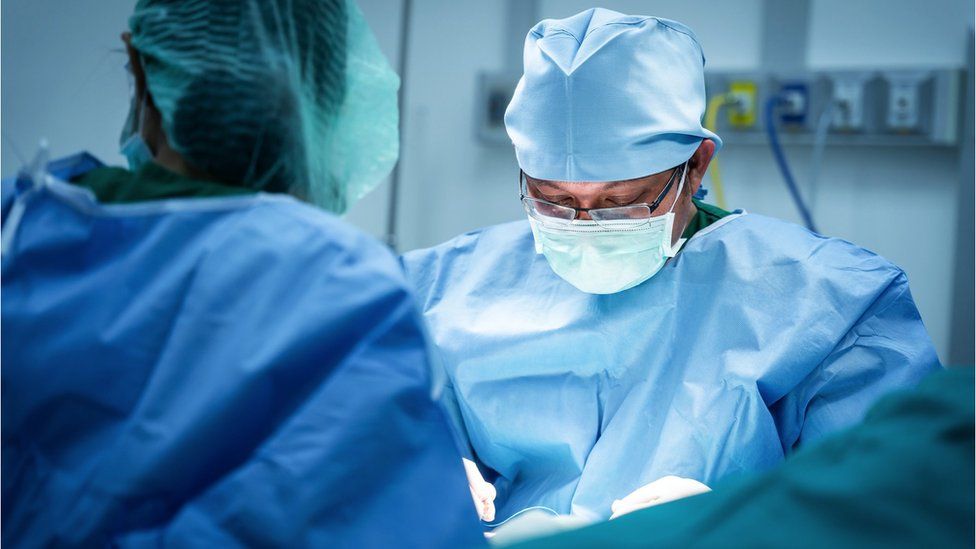ARTICLE AD BOX
 Image source, Getty Images
Image source, Getty Images
By Michelle Roberts
Digital health editor
A 62-year-old man is said to be recovering well and should leave hospital soon, after getting a new kidney from a pig that was genetically modified to reduce the risk of the organ being rejected.
US surgeons say Rick Slayman is a "real hero" for trying the pioneering operation.
The ultimate hope is to use animal organs for more transplants.
Pig kidneys have been put into brain-dead people before as a test.
The four-hour surgery, performed on 16 March, "marks a major milestone in the quest to provide more readily available organs to patients", Massachusetts General Hospital said in a statement.
Mr Slayman had a human kidney transplant at the same hospital in 2018 after being on dialysis for seven years before that, because his own kidneys were not working properly.
Five years later, the transplant failed and he had to go back on dialysis in May 2023.
His prospects were not looking good, say his doctors - getting the dialysis to work was difficult since his blood vessels had been repeatedly used for it many times.
He encountered recurrent dialysis vascular access complications, requiring visits to the hospital every two weeks for de-clotting and surgical revisions, significantly affecting his quality of life, his doctors explained.
Mr Slayman said he weighed up the pros and cons and decided to go ahead with the pig kidney transplant: "I saw it not only as a way to help me, but a way to provide hope for the thousands of people who need a transplant to survive."
There is a chronic shortage of human donor organs for people who need them. Animal donors might help solve that. Heart transplants from pigs to humans have been tried recently too.
The special pig kidney was provided by eGenesis of Cambridge, Massachusetts. The animal had been genetically edited to remove genes that could be harmful to a human recipient and to add certain human genes to improve compatibility.
Mr Slayman is still taking anti-rejection drugs though, and it is not clear for how long his new kidney will function. This is unchartered territory.
One of the transplant team, Dr Tatsuo Kawai, said: "Our hope is that this transplant approach will offer a lifeline to millions of patients worldwide who are suffering from kidney failure."
Related Internet Links
The BBC is not responsible for the content of external sites.

 1 year ago
47
1 year ago
47








 English (US) ·
English (US) ·